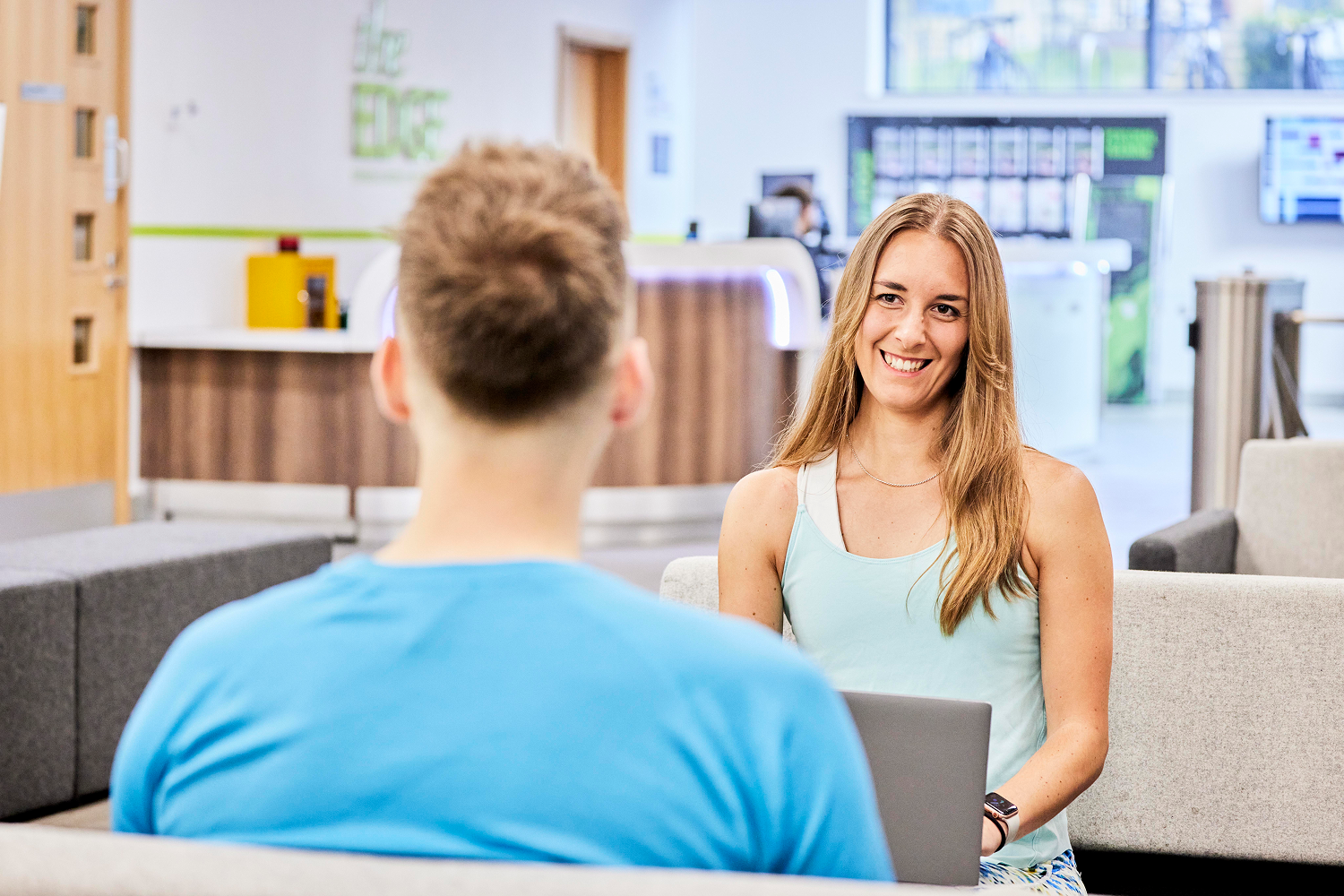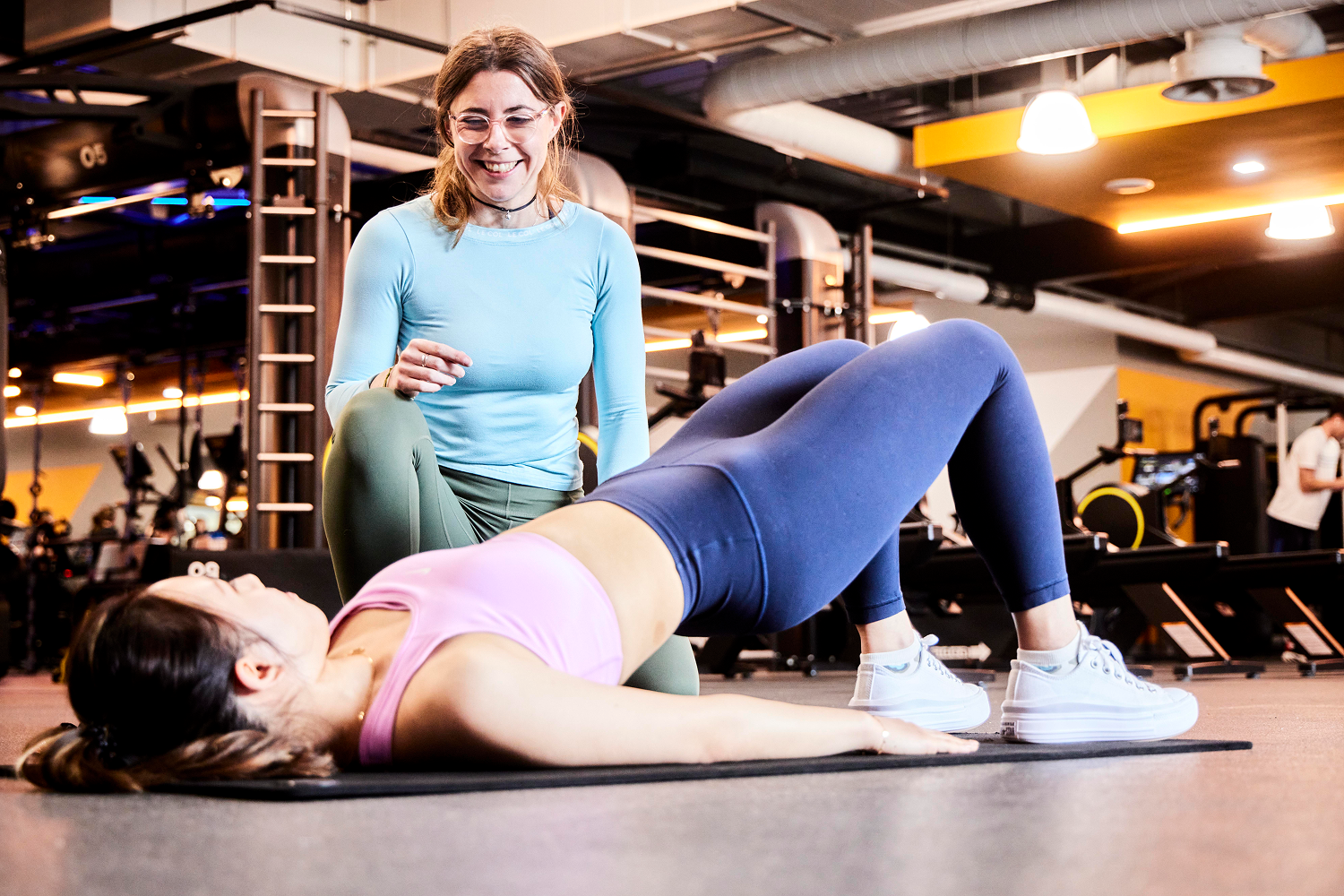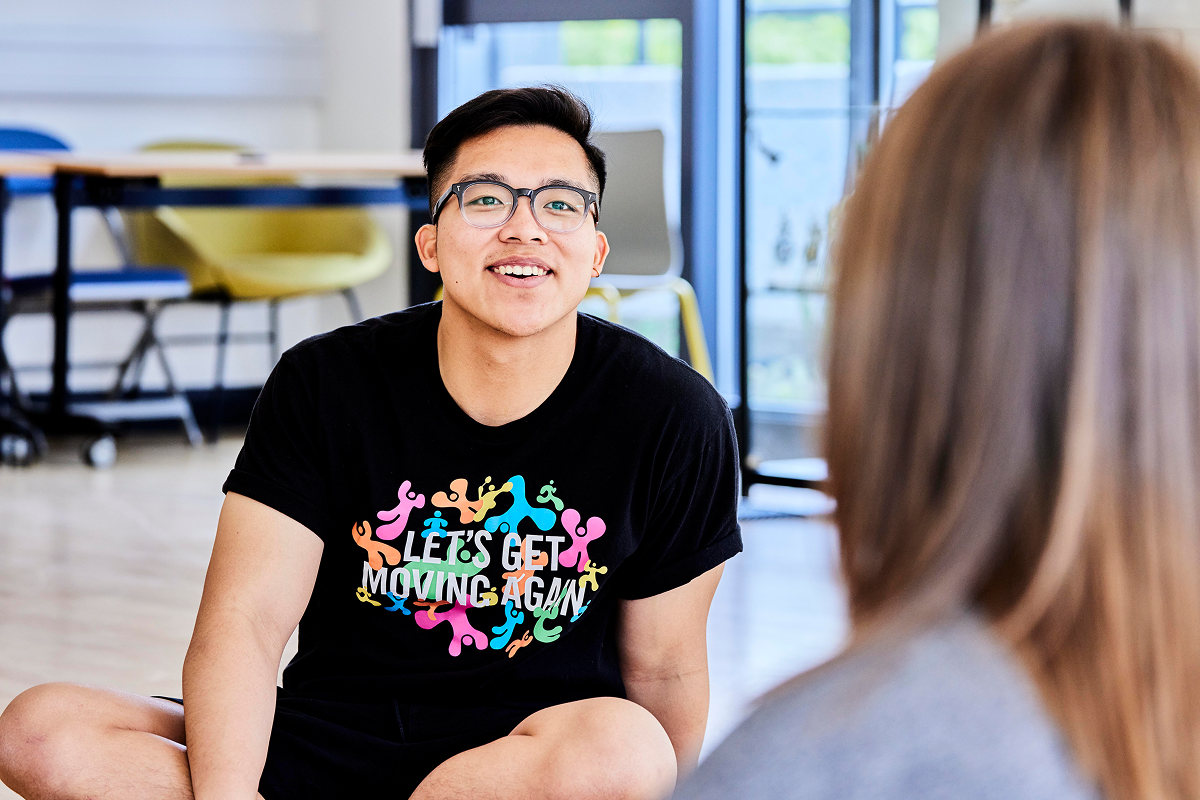PROTECTING STUDENTS’ MENTAL HEALTH

With demand for university mental health services higher than ever before, your support for a pioneering lifestyle and wellbeing programme is making a life-changing difference to our students.
After she was assaulted in 2023, student Natalie (not her real name) suffered severe anxiety. She avoided leaving the house – particularly at night – and would catch taxis when she needed to travel.
“That was particularly hard with my course,” says Natalie. “I had a lot of contact hours and needed to attend placements, but each trip was a challenge. I stopped exercising – I used to enjoy yoga and judo – and avoided social events. I had trouble sleeping and lost my appetite. My whole life changed.”
When I was finding it hard, my wellbeing consultant reminded me of how far I had come from the first meeting.
Natalie attended student counselling, and was referred to the donor-supported Lifestyle and Wellbeing Programme, which offers an alternative solution to traditional counselling. “I met with my wellbeing consultant, and we worked together to put a plan in place.”
Over the last 10 years, the demand for Student Counselling and Wellbeing services at Leeds has increased by 10% annually – and jumped by 35% during the cost-of-living crisis. Since 2012, the Leeds supporter community has funded the Lifestyle and Wellbeing Programme. It runs alongside traditional services, taking a holistic approach to wellbeing by looking at physical activity, stress, sleep, nutrition and routine for each student over a 12-week period.
Did you know?
The number of UK university students experiencing mental health difficulties has increased from 6% - 16% in the last 6 years
In Natalie’s case, the first goal was to build confidence. “For those first few appointments, we started with home workouts and did some walks together,” says Natalie. “That included going past where the assault happened. We focused on getting used to walking in the dark again.”
They looked at how she might improve sleep hygiene, the benefits of regular meals and creating a routine. Research shows that these physical, nutritional, psychological and recreational interventions positively impact on people’s sense of wellbeing. Improved wellbeing helps to increase academic performance, feelings of self-efficacy, sense of belonging and personal development.
Participants receive free access to the University’s gym and sport facilities to help them effectively implement the changes they make during the programme. “We introduced the gym work gradually,” says Natalie. “First I attended with my wellbeing consultant, and then I started to go alone as I felt more comfortable walking places by myself. We built up my general fitness and strength.
“My wellbeing consultant understood my needs and tailored our plan accordingly. When I was finding it hard, she reminded me of how far I had come from the first meeting.
“She really was incredible.”
Our wellbeing consultants are qualified to support students across a range of conditions – from poor mental health, to learning difficulties, to physical disabilities. Referrals come from a number of areas across campus, including counselling services, disability services, harassment and misconduct services, faculties and the Plus Programme.
For Rachel Tunstall, programme leader and Physical Activity and Wellbeing Manager at the University, their expertise is key to the programme’s success: “The bespoke support is where the quality lies. Developing a strong relationship with the wellbeing consultant means that advice and signposting is trusted and followed so changes and habits continue after the 12 weeks."
In 2024, all 200 participants reported improvements in wellbeing across each of the key areas. They reported improvements in physical health, relationships, mood, confidence, work ethic and performance. The initiative is sector leading, with many universities keen to replicate the approach.
100%
of participants in the Lifestyle and Wellbeing Programme reported a positive impact on physical
After the 12-week programme, participants averaged:
An 84%
increase in physical activity
A 25%
improvement in mental wellbeing score
A 20%
improvement in daily nutritional scores
50%
fewer disrupted nights’ sleep per week


“We know the correlation between physical and mental wellbeing,” Rachel says. “The format we’ve developed is incredibly unique and effective in helping students like Natalie. We know from experience that the students who are most in need have the most to gain.
“But it also creates challenges in meeting demand – because demand is increasing, and cases are becoming more complex.”
Since the Covid-19 pandemic, the consultants have noted that students referred to the programme have had significantly lower starting levels of wellbeing than in years previously, meaning that each individual needs more contact time. “That's why it's more crucial than ever that we continue to offer and expand what we’re doing,” says Rachel. “We know the difference it makes to students in need.”
At the end of the 12-week period, each individual is empowered to continue making positive choices to support their health and wellbeing. For Natalie, that meant keeping up with her trips to the gym, continuing with her new routine, and eventually returning to the things she loves.
"I think the programme is vital for people like me,” she says. “I have not regained all of my confidence, but I am well on the way to doing so.”
How the Lifestyle and Wellbeing Programme helped Leeds students:
I am someone who struggles to speak about my issues, so the practical approach really helped me.
As someone who deals with a lot of anxiety, this programme was an amazing help. It gave me that initial support and confidence that I needed to even walk around the gym without feeling self-conscious because I didn't know what I was doing.
The programme gave me a goal. It got me out of the house and socialising when I was feeling very low. I soon found I was better able to focus and balance university work with leisure.
Talking about my eating habits as well as my exercise routine really brought them into the limelight. I now eat and cook more regularly and healthily.
Donate today
Our donors help to make life changing difference sto students by supporting the Lifestyle and Wellbeing Programme at Leeds. Thank you.